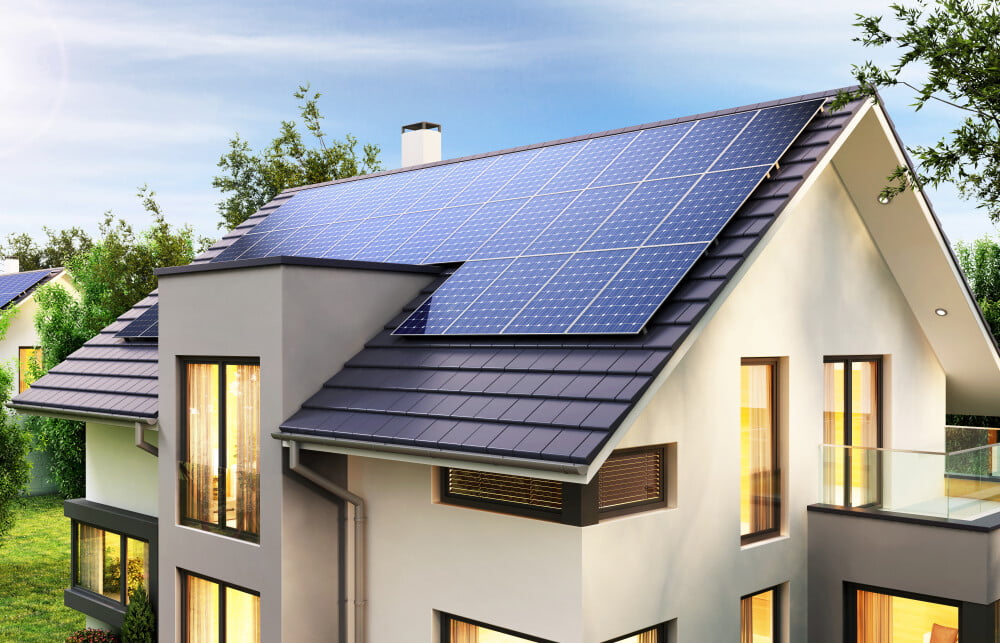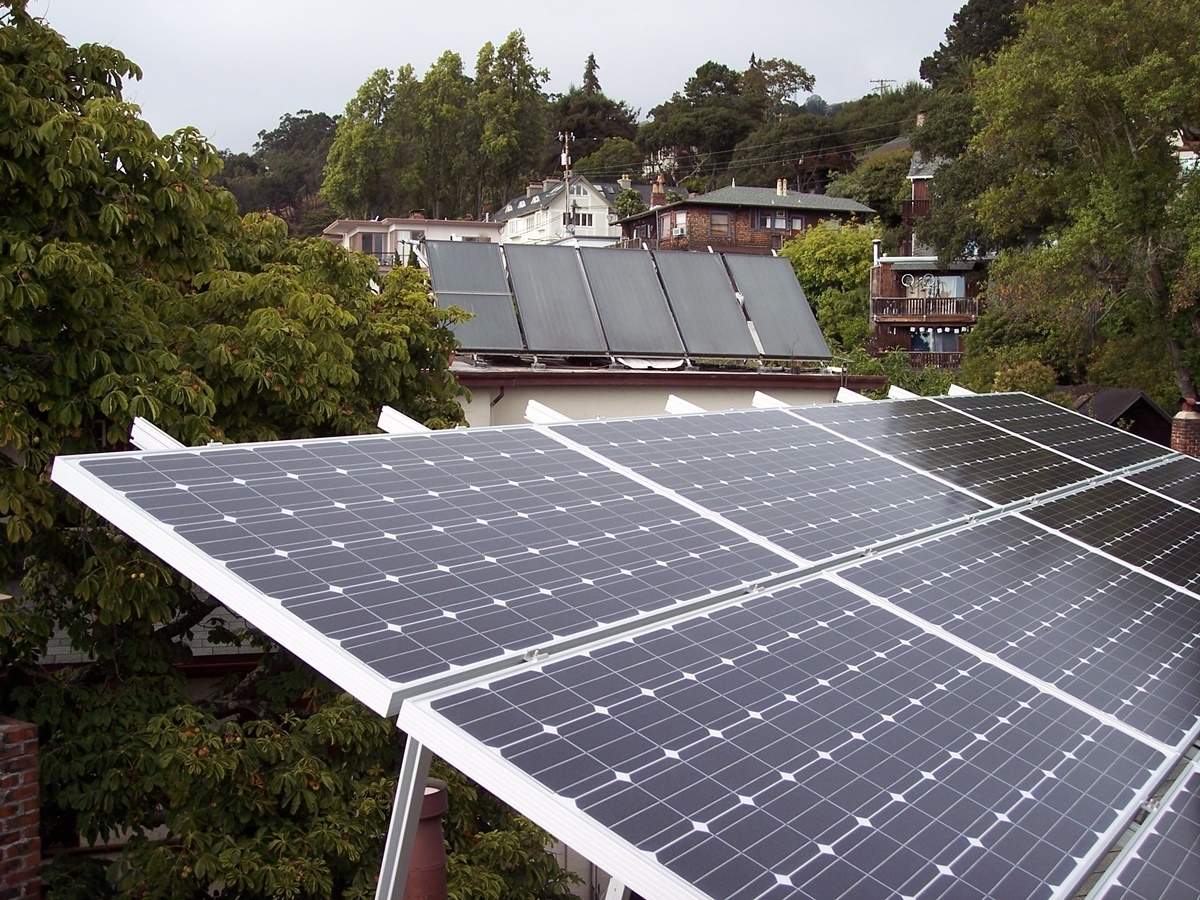Solar panel for home purpose | How do you choose the best home solar panels?
What is the purpose of a solar panel?
A solar panel is the technical term for an object that converts light into electricity. It’s a photovoltaic device, so you can think of it as using the power of photons to create electrical energy. There are many reasons to install solar panels on a home, but the most common ones include providing power for use during times of peak demand or when there is no other source of electricity available
Solar panels are a great way to reduce your carbon footprint and save money on your energy bill. They also provide other benefits, such as:
- Saving money on your energy bill
- Providing shade for your home in the summertime
- Making your home more valuable
Which type of solar panel is best for home use?
Solar panels come in various shapes and sizes, each with its own set of features. To make the best choice for your home or business, you must identify what type of solar panel would suit your needs.
Solar panel types
There are three main types of solar panels: monocrystalline, polycrystalline, and amorphous silicon.
Monocrystalline and polycrystalline panels are made from silicon cells. Monocrystalline cells are made from a single crystal of silicon, while polycrystalline cells are made from many smaller crystals.
Amorphous silicon is the non-crystalline form of silicon used for solar cells and thin-film transistors in LCDs. It is deposited in thin films onto a variety of flexible substrates, such as glass, metal and plastic.
The most common and efficient type of solar panel available is monocrystalline. Monocrystalline panels boast some of the highest efficiency ratings on the market, as well as a 25-year warranty. They are more expensive than polycrystalline panels, but offer benefits such as efficiency and durability that make them worth the extra cost.
Solar panel inverters
There are two types of solar inverters: string inverters and micro-inverters. String inverter is the most common type of solar power system in use today, where all the panels are connected to one central inverter. On the other hand, micro-inverters are used in a system which has each solar panel connected to its own inverter. The advantage of micro-inverters is that they are more efficient and produce higher quality power than string inverter systems, as well as allowing for each panel to be monitored and maintained independently.
Solar panel tax credits
The federal solar tax credit is a dollar-for-dollar reduction in your federal income taxes for installing a solar energy system in your home. The credit drops from 26% to 22% in 2023 and is gone at the start of 2024, so you need to go solar before the end of 2022 for the highest possible savings. The amount of the tax credit also depends on where you live.
The solar tax credit is not the only incentive for going solar – there are many other benefits available which vary by state. For example, some states offer rebates or direct payments for going solar, while others have net metering laws that allow homeowners with solar panels to sell excess energy back to their utility company.
Solar panel system cost
The cost of a solar panel system varies from home to home. The overall cost of solar panels depends on the size and complexity of the project, as well as the federal solar tax credit for homes. Residential solar panels are usually sized at 3kW to 8kW and can cost anywhere from $9,255 and $28,000 in total installation costs.
The most cost-effective option is to purchase your system upfront. Although, several solar companies offers payment plans. A solar loan is a great option for those who cannot afford the upfront costs of purchasing a solar panel system. Solar leases and PPA are less expensive options, but they do not allow you to own the system.
Solar panel system ROI
When considering a solar panel system for your home, you should evaluate the return on investment (ROI). A typical photovoltaic system or PV system will see a 20% ROI in the first year. Payback periods vary for every individual and solar system. Some homeowners will spend more on their system. Others use more electricity or live in an area where electricity is more expensive
How do you choose the best home solar panels?
When choosing a solar panel for your home, you should consider the following factors:
Consider efficiency

When you’re looking to install solar panels on your home, it’s important to consider the efficiency of the panels. SunPower has the highest efficiency rating, but there are other high-efficiency panels on the market. The industry standard for solar panel efficiency is 17-20%, with anything higher being considered top of the line.
Check warranty information
When you’re looking to buy solar panels, it’s important to check the warranty information. A warranty of 10 years is the minimum we recommend to cover your investment. However, many panels are eligible for rebates or other incentives, so be sure to check out your local government websites as well as shopping around at different retailers if you’re able to get additional savings.
SunPower panels are great, with the highest efficiency we’ve seen. They also have a longer warranty than most other companies–up to 25 years! So if you’re interested in their products, be sure to get free quotes from them.
Compare price and efficiency
When looking to buy solar panels, it is important to compare the price and efficiency of different products. In addition to price and efficiency, other factors such as installation costs and inverters should be considered when making a purchase decision.
The number of panels you need depends on many factors, including your personal energy consumption habits. The more solar panels you have in your house, the lower the cost will be for each individual panel. It is important to note that quality also affects price; the higher quality solar panels you buy, the less likely they are to break down over time.
EnergySage gathers multiple solar system quotes to give consumers a chance to compare costs. Consumers are then able to see what the best option for them may be, based on their specific needs, preferences and budget constraints.
Think about your home energy needs
When you’re considering adding solar panels to your home, the first thing you need to think about is your energy needs. How many people live in your home? What appliances do you use most often?
You also need to take into account the type of solar panels you want. Some are more efficient than others, so it’s important to do your research.

What is the difference between solar energy whether it is on-grid or off-gird?
On-grid solar systems
On-grid solar systems are the most common type of solar system. They are connected to the power grid, and when they produce more energy than the home needs, that energy is exported to the grid.
On-grid solar systems typically use a net metering agreement with the utility company. On-grid solar systems are less expensive than off-grid solar systems because they do not require a battery bank.
Hybrid solar systems are those that have battery backup and are connected to the utility grid.
Off-grid solar systems
Off-grid solar systems are not connected to the utility grid. This means that you are completely independent of the power company. Off-grid solar systems can be expensive because they require an excessive amount of battery storage. The off-grid system is only connected to your home and a battery bank, but it generates power for all 24 hours a day.
Off grid is a third type of system, but few people elect to go off-grid unless they live in a remote area where there is no access to utility power.
Solar system batteries
Solar system batteries are an important part of any off-grid solar power system. They store the electricity generated by the solar panels during the daytime, so that you can use it at night or during a power outage.
There are two types of batteries used in solar systems: lead acid and lithium ion.
- Lead acid batteries are more expensive, but they also have shorter life spans and require more maintenance than lithium ion batteries.
- Lithium ion batteries are less expensive, but they have longer life spans and don’t require as much maintenance as lead acid batteries.
How much does a solar panel installation cost?

The main cost associated with installing a solar panel system is the installation itself. Depending on the size and type of battery, installing solar panels can cost anywhere between $17,538 to $23,458. This price will depend on location, with solar power costing more in regions farther from the equator, like Alaska, and costing less for sun-drenched regions.
There are different options for installation, such as roof-mounted or ground mounted; costs vary depending on these factors. It’s important to consult with an expert about your specific needs and requirements in order to get an accurate estimate of the total cost.
FAQs: What is the purpose of a solar panel?
What is the most efficient residential solar panel?
The most efficient residential solar panels are crystalline silicon. Crystalline silicon is the most common type of panel found on residential rooftops and can produce up to 22 percent.
How many solar panels are needed to run a house?
The size of the solar system depends on the needs of the individual. Average size systems in 2022 are around 8 kW, but vary depending on brand and model. An average home needs between 20 and 24 solar panels to fully offset utility bills with solar
In order to get an “exact number of panels” for your home, you would need to know the wattage of each panel and how many hours of sun your area gets per day. However, this varies greatly by region and even by house orientation (whether it faces south, east, west or north).
How long do solar panels last?
Solar panels typically have a warranty that lasts 25 years. However, a quality solar panel can last up to 25 years or even longer than the warranty. According to a study conducted by the National Renewable Energy Laboratory, solar panels last 80% longer than their warranty!
How often do solar panels need maintenance?
It is important to maintain the solar panels in order for them to operate at peak efficiency. Some companies will require quarterly maintenance, while others conduct annual inspections. Monitoring your inverter display monthly, and staying up to date with your provider will allow you to detect if it is time to get the panels serviced.
Do solar panels need to be tilted?
Yes. The tilt of the panels plays an important role in their performance. The best angle for when your panels will get a maximum output is 60° when the sunlight is at perpendicular to them and in the winter, 45°. During the spring, 20° is better, and during summertime, 100° or less is ideal.
